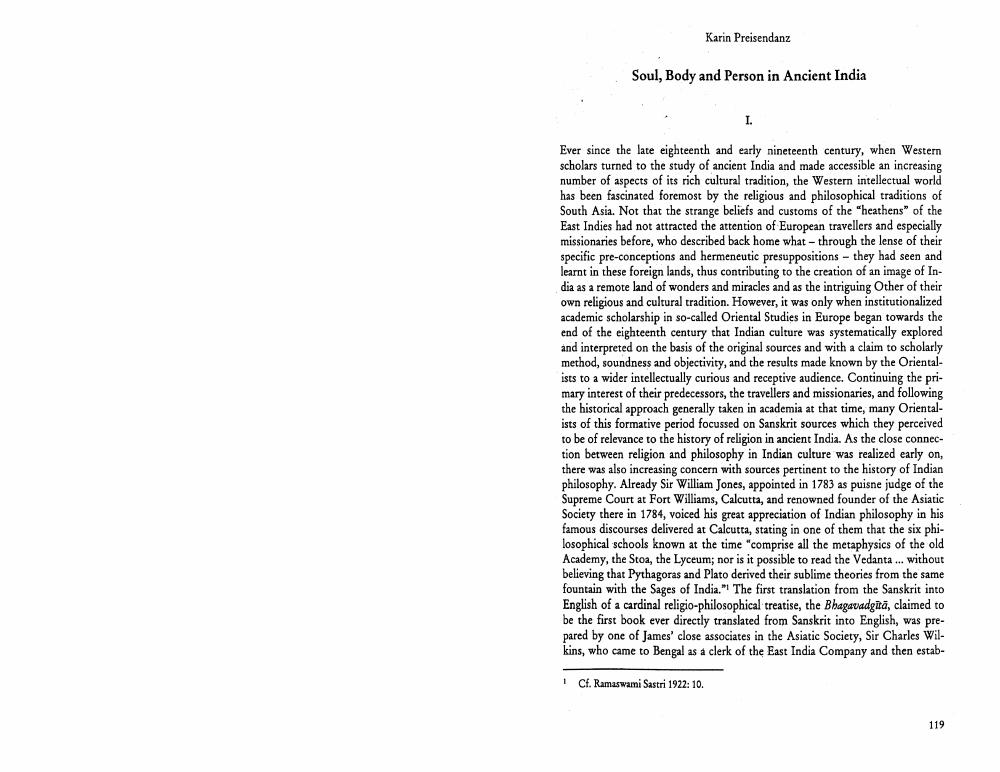Book Title: Soul Body And Person In Ancient India Author(s): Karin Preisendanz Publisher: Karin Preisendanz View full book textPage 1
________________ Karin Preisendanz Soul, Body and Person in Ancient India Ever since the late eighteenth and early nineteenth century, when Western scholars turned to the study of ancient India and made accessible an increasing number of aspects of its rich cultural tradition, the Western intellectual world has been fascinated foremost by the religious and philosophical traditions of South Asia. Not that the strange beliefs and customs of the heathens of the East Indies had not attracted the attention of European travellers and especially missionaries before, who described back home what-through the lense of their specific pre-conceptions and hermeneutic presuppositions - they had seen and learnt in these foreign lands, thus contributing to the creation of an image of India as a remote land of wonders and miracles and as the intriguing Other of their own religious and cultural tradition. However, it was only when institutionalized academic scholarship in so-called Oriental Studies in Europe began towards the end of the eighteenth century that Indian culture was systematically explored and interpreted on the basis of the original sources and with a claim to scholarly method, soundness and objectivity, and the results made known by the Oriental ists to a wider intellectually curious and receptive audience. Continuing the primary interest of their predecessors, the travellers and missionaries, and following the historical approach generally taken in academia at that time, many Oriental ists of this formative period focussed on Sanskrit sources which they perceived to be of relevance to the history of religion in ancient India. As the close connection between religion and philosophy in Indian culture was realized early on, there was also increasing concern with sources pertinent to the history of Indian philosophy. Already Sir William Jones, appointed in 1783 as puisne judge of the Supreme Court at Fort Williams, Calcutta, and renowned founder of the Asiatic Society there in 1784, voiced his great appreciation of Indian philosophy in his famous discourses delivered at Calcutta, stating in one of them that the six philosophical schools known at the time "comprise all the metaphysics of the old Academy, the Stoa, the Lyceum; nor is it possible to read the Vedanta ... without believing that Pythagoras and Plato derived their sublime theories from the same fountain with the Sages of India." The first translation from the Sanskrit into English of a cardinal religio-philosophical treatise, the Bhagavadgitā, claimed to be the first book ever directly translated from Sanskrit into English, was prepared by one of James' close associates in the Asiatic Society, Sir Charles Wilkins, who came to Bengal as a clerk of the East India Company and then estab 1 Cf. Ramaswami Sastri 1922: 10. 119Page Navigation
1 2 3 4 5 6 7 8 9 10 11 12 ... 29
